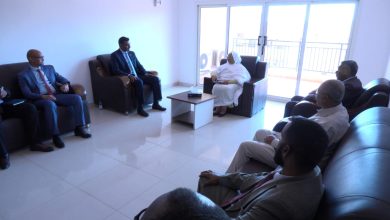Economic
E-Money: An Optimal Solution to Sudan’s Cash Crisis
Walid Dalil – Banking Expert
Since the outbreak of conflict in mid-April, the banking sector in Sudan has been paralyzed, despite efforts by the Ministry of Finance and the Central Bank of Sudan to resume banking activity in areas far from the conflict.
With the closure of banks and the collapse of electronic payment services, Sudanese citizens face a severe cash crisis affecting their ability to manage their livelihoods amidst ongoing conflict.
In recent years, Sudanese people preferred to rely on electronic applications for transactions instead of cash dealings. However, the conflict has exacerbated the cash crisis due to delays or the non-payment of salaries.
For our country, expanding the adoption of electronic payment methods such as mobile money, point-of-sale systems, and
prepaid cards offers immediate and accessible solutions for the financial and banking sectors, as well as the commercial sector, to overcome the cash crisis. This approach reduces the need for physical currency to settle payments, lowers operational costs, and shortens the time needed to complete transactions.
We cannot dispute the awareness and understanding of the advantages of electronic payment methods among the management leadership in Sudanese banks. We have full confidence in their awareness of these benefits and their commitment to developing these methods and expanding their use to reap the positive impacts on banking activities. However, we must acknowledge the existence of objective challenges that hinder the rapid adoption of these advanced services. Among the most prominent obstacles are the weakness of law enforcement institutions and the low public awareness of the importance of these services in achieving financial inclusion and combating corruption.
Reducing reliance on cash payments and transitioning towards electronic transactions and e-payments is crucial for resolving Sudan’s banking liquidity crisis. This solution involves:
1.Restoring Confidence in the Banking Sector: By improving services and diversifying the products offered by banks to eliminate “shadow banking” and enhance the role of banks in financial intermediation.
2.Rebuilding Trust in the Sudanese Pound: As a store of value and a means of payment by creating deposit instruments within banks that offer attractive returns for savers in the form of investment certificates, using accepted formats. This includes offering returns on credit balances in current accounts and setting limits for these balances that qualify for returns, which would be deducted from annual profits distributed to shareholders at the end of the financial year. The Central Bank should also consider this role as part of its responsibilities.
3.Encouraging Banks to Open Electronic Branches: Where all transactions are conducted electronically, including withdrawals, deposits, account transfers, balance inquiries, bill payments, and cash withdrawals.
4.Phasing Out High-Denomination Banknotes: Such as the 1,000-pound note that has become a means of hoarding money. In later stages, withdrawing large denomination notes and replacing them with smaller denominations should be considered.
5.Ensuring the Central Bank Implements Policies: That provide a minimum amount of foreign currency for various purposes on a sustainable basis, matching the actual needs of the economy for goods and services based on trade policies. This should be aligned with available reserves and monthly revenues, ensuring that the Central Bank does not favor seasonal trends in foreign currency availability or change its policies frequently, thus ensuring market stability and the availability of Sudanese pounds in banks.
6.Enhancing Financial Inclusion Programs: To extend banking services to all cities and villages, including payments, withdrawals, transfers, investments, and ATMs.
7.Mandating Electronic Payment for Revenue Collection: Entities that collect their revenues in cash, such as electricity companies, customs, tax authorities, and insurance companies, should be required to collect payments electronically using banking cards through government-issued mandates, offering incentives for those who pay electronically.
8.Activating Anti-Money Laundering Units in Banks: Enforcing the anti-money laundering and anti-terrorism financing law through binding resolutions issued by the National Anti-Money Laundering Committee.
These measures aim to alleviate the cash crisis, stabilize the banking sector, and transition the Sudanese economy toward a more modern and efficient electronic financial system.



